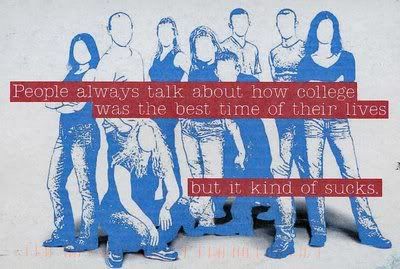Men, this post is for you.
I’ve been told by trusted sources that potential suitors may read my blog and find themselves intimidated by my feminist ideas. I would never want to discourage a potential suitor until I discover him to be deplorable, so I’m offering up this post as an olive branch of sorts.
So, here’s why you should date feminist girls like me.*
- We split the check. Now, I’m not gonna lie–I don’t speak for all feminists, but I personally appreciate when a guy offers to pay for me. Sometimes I even accept. However, that doesn’t mean I expect it. Hell, sometimes I even pay for the guy.
- We won’t use you as a free plumber/computer technician/mover. I can unclog my own toilet, fix my own computer, and–usually–schlep my own shit up the stairs. Why? Because rather than sitting around looking pretty and helpless, I’ve enjoyed figuring out how to do that stuff myself. (Case in point: I once ran Linux (Ubuntu, if you’re interested) on my laptop for an entire year just for the hell of it.)
- We’re great in bed. Most–though of course not all–feminists refuse to buy in to the idea that a woman is only sexy if she’s either a shy, girlish virgin or a porn star. We recognize that sexiness is an attitude, not a set of genetically inherited traits. We understand that there’s nothing shameful or dirty about sex.
- We don’t expect you to be rich. I’ve dated (or at least crushed on) guys who’ve majored (or worked) in anything from business, economics, biology, and pre-med to philosophy, history, English, and psychology. I’ve been into guys whose parents are lawyers and guys whose parents barely make ends meet. Because I don’t see dating as a way to become financially secure. I can do that for myself.
- We will never subject you to monologues about our physical flaws. (Or, at least, we’ll do so very rarely.) After many years, I’ve finally stopped thinking I’m fat. But it’s not because I got any thinner or got an expensive therapist. It’s because I’ve finally realized that even if I were fat, that would in no way diminish my worth as a human being–and that’s an idea I can thank feminism for. Once I realized that, I finally stopped pinching my stomach and analyzing my thighs, and got to work thinking about the stuff that matters.
- We don’t buy into the whole Valentine’s Day shebang. Every February, I discover magazine advice columns full of letters from men terrified that they won’t be able to provide the “perfect” Valentine’s Day experience for their girlfriends, fiancées, or wives. Well, gentlemen, you don’t have to worry with me. I appreciate Valentine’s Day gifts and usually give them myself, but I have no special expectations for that day aside from a hug and a kiss.
- We don’t need you to be super ripped and athletic. Most feminists recognize that there are soooo many interesting things a person could do with his/her life aside from trying to look good. I like to date people who are passionate about something. If they’re passionate about sports, cool. If they’re passionate about something totally different and don’t have much time for sports, still cool.
- We care about things. Now, I realize that for some men, this is a dealbreaker. But I truly believe that most guys like it when a girl actually cares about things that happen in the world and has plenty of interests. I have lots of flaws, but one word that’s never been used to describe me is “boring.”






